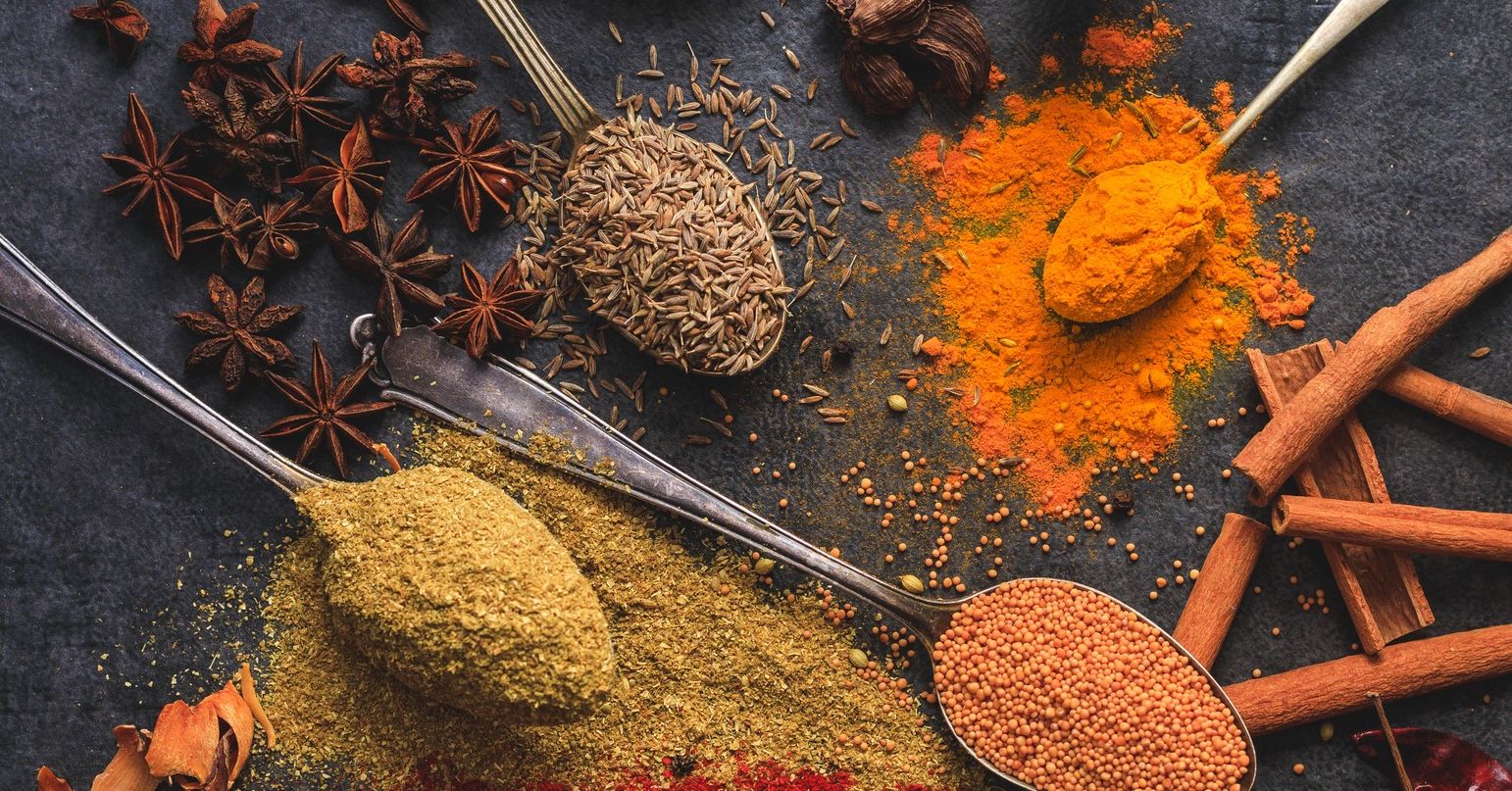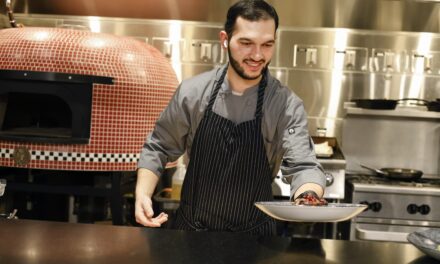
Photos courtesy of Sultan Restaurant
Chef Sultan Ahmed believes in protecting small, local, regional farms and supply chains for a healthier, sustainable food model for communities and his restaurant.
Downtown Madison is home to many fabulous restaurants, and one recent addition to the district is Sultan, located at 1054 Williamson St. The fine dining restaurant offers a deconstructed, small plates approach to Pakistani and Punjabi cuisine, emphasizing the bold and appealing flavors from said regions of the world using the Midwest’s finest ethically-sourced ingredients. Sultan takes its name from the restaurant’s owner and chef, Sultan Ahmed.
Paying tribute to his home and heritage, Sultan Ahmed approaches his restaurant’s dishes from a deconstructive lens, breaking them down to their core ingredients, as he believes that Asian and South Asian flavors are some of the best in the world.
“There is nobody like the Asian population that can imbue flavor and vibrant, dynamic tastes in food,” Ahmed asserts. “At the same time, I think what’s lacking in Asia is an appreciation of fine agriculture, which is something that I think Europeans and Japanese folks do very well, highlighting what’s naturally good about the ingredient itself, whereas in South Asia we mask it with a lot of spices and sauces.”
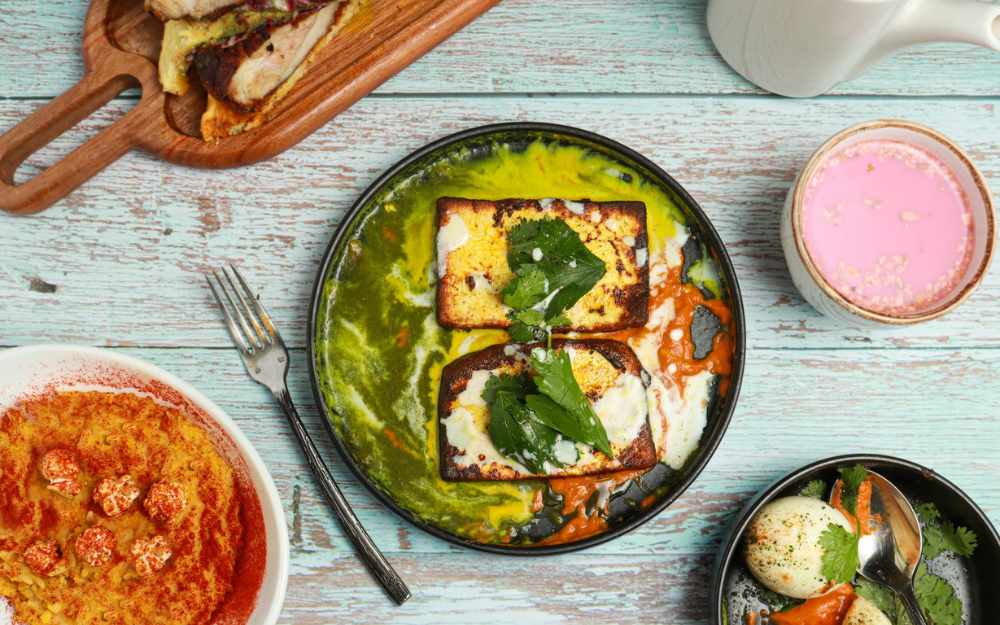
The choice to serve small plates is a conscious way to highlight the best ingredients and flavors.
With Sultan’s food, Ahmed marries these concepts by way of small plates, bringing out the best in both the ingredients and the flavors. “We’ll take something that would normally be a curry and turn the masala into something like a fine sauce,” he elaborates. “Then we’ll plate that as a sauce with whatever the main component of the dish is, so you get that amazing flavor profile of the spice but you still get to taste that natural ingredient separately.”
The small plates also elevate nutrition as a core value of Sultan as well. All of their protein and seafood is humanely raised on local Wisconsin farms, free of hormones and antibiotics. Ahmed estimates that about 75 percent of Sultan’s vegetables and produce are sourced locally, with exceptions made for items not grown in the US.
“We need to protect our small, local, regional farms and supply chains,” Ahmed explains his philosophy. “Folks should shop at their local butcher, buy from small producers, not support large, industrial factory farms, and try to educate themselves on how their food gets to the grocery store. Support the folks who need it so we can have a healthy, sustainable food chain in this country.”
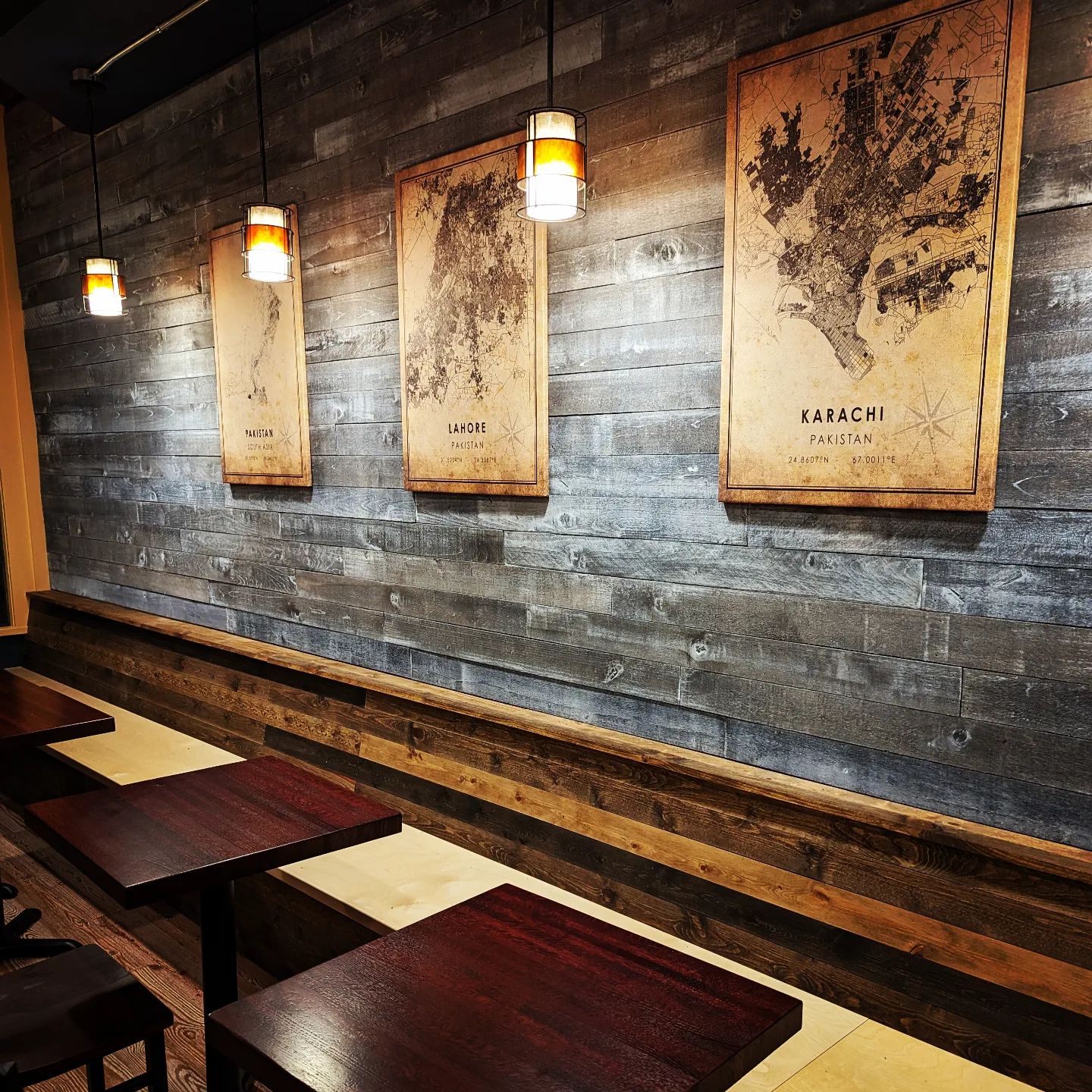
Interior of Sultan restaurant
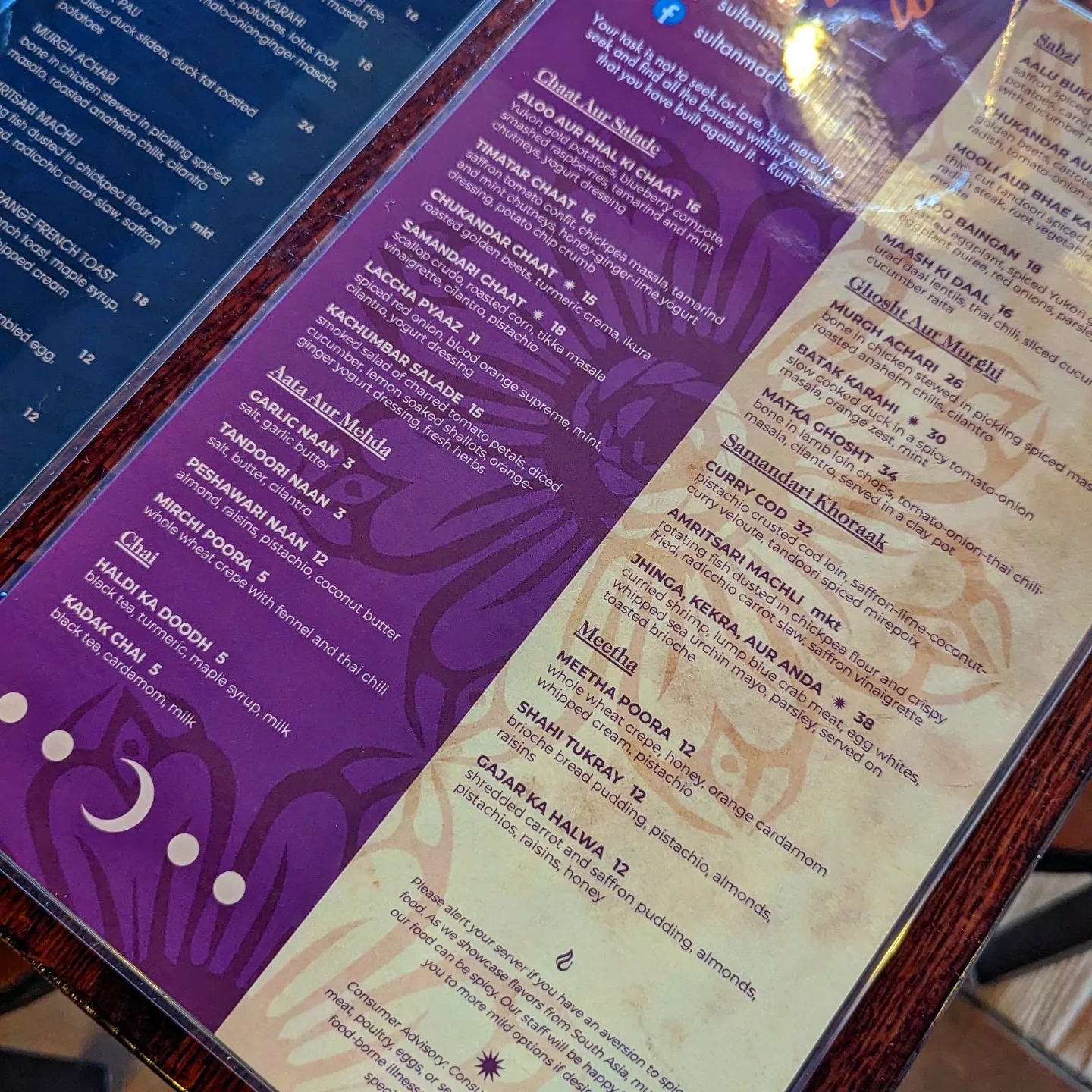
A peek at some of offerings on the menu
Born in Karachi, Pakistan, Ahmed grew up in Ohio before moving to Madison in 2012. Although he worked in technical consulting for many years, Ahmed always loved cooking, and by his early 20s he desired to have his own restaurant. “I grew up in a house with a lot of home cooking,” he remembers. “My mom was a fairly good cook and I would always watch her, and that’s where my initial interest developed.”
As he got older, Ahmed traveled all over the world and experienced many different cuisines, and he began cooking more on his own. “For as long as I can remember, my happiest memories really were around food,” he continues. “In South Asian culture, food is always at the forefront of everything that we do.”
One day while driving down Williamson Street, Ahmed noticed a ‘for lease’ sign in the window of a beautiful corner space. At that moment he decided to make the leap.
“After that I signed the lease, and it’s done reasonably well so far,” Ahmed affirms.
Sultan opened its doors in spring of 2023 and business quickly boomed. Ahmed describes the restaurant’s atmosphere as “sophisticated but casual,” laden with dark wood and stained concrete. Adorning its walls are map canvases of Pakistani cities like Islamabad and Peshawar while a beautiful mural by local artist Audifax is displayed overhead.
The restaurant is open for dinner service every night except Wednesday and Thursday. Both Sultan’s tasting and dinner menus are rotated seasonally, each curated from a multicultural lens with respect to flavor, preparation and plating.
“Our menu changes about every three months,” Ahmed mentions. “The offerings will be completely different, and we generally focus on items that will be at their peak during the time we’ll be doing the menu.”
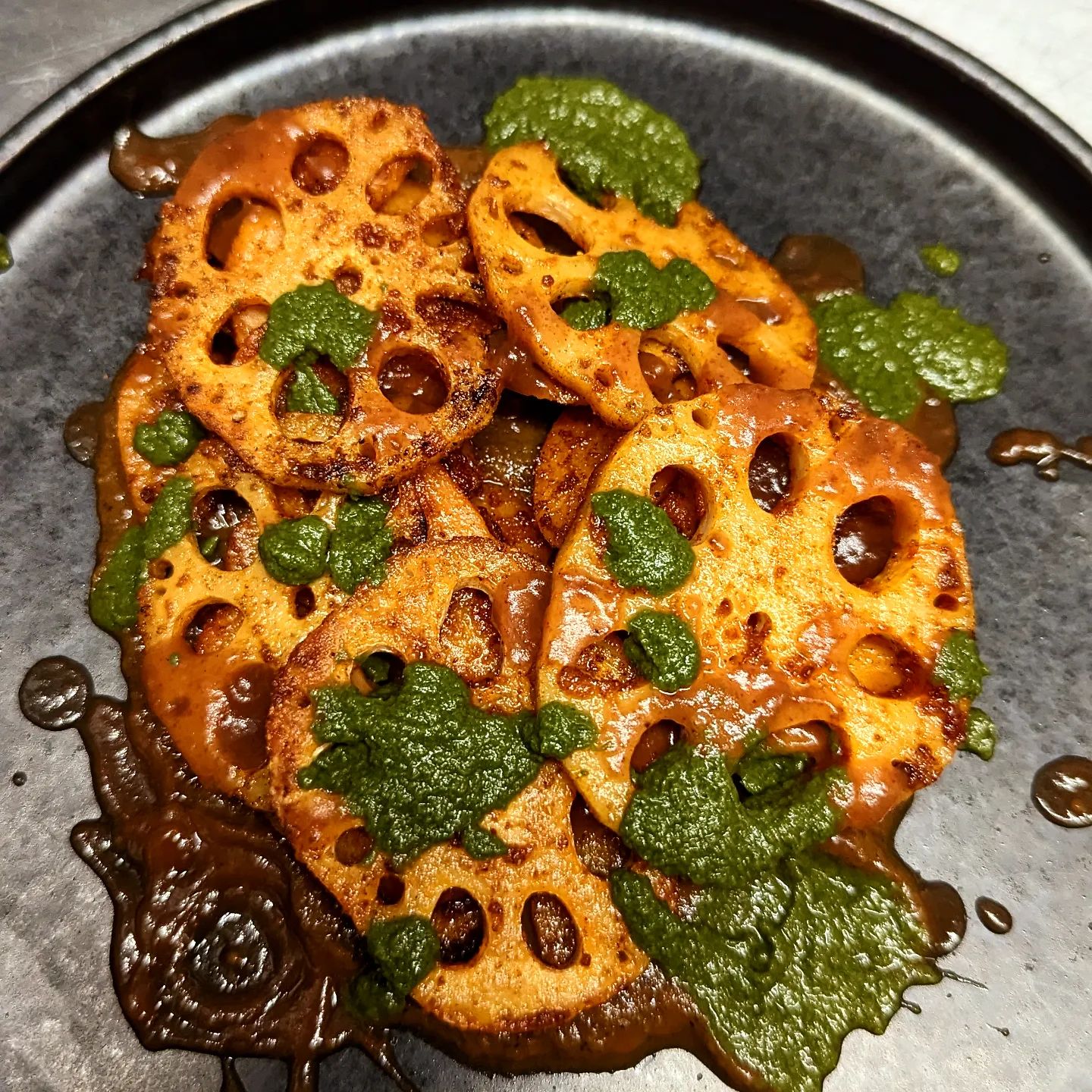
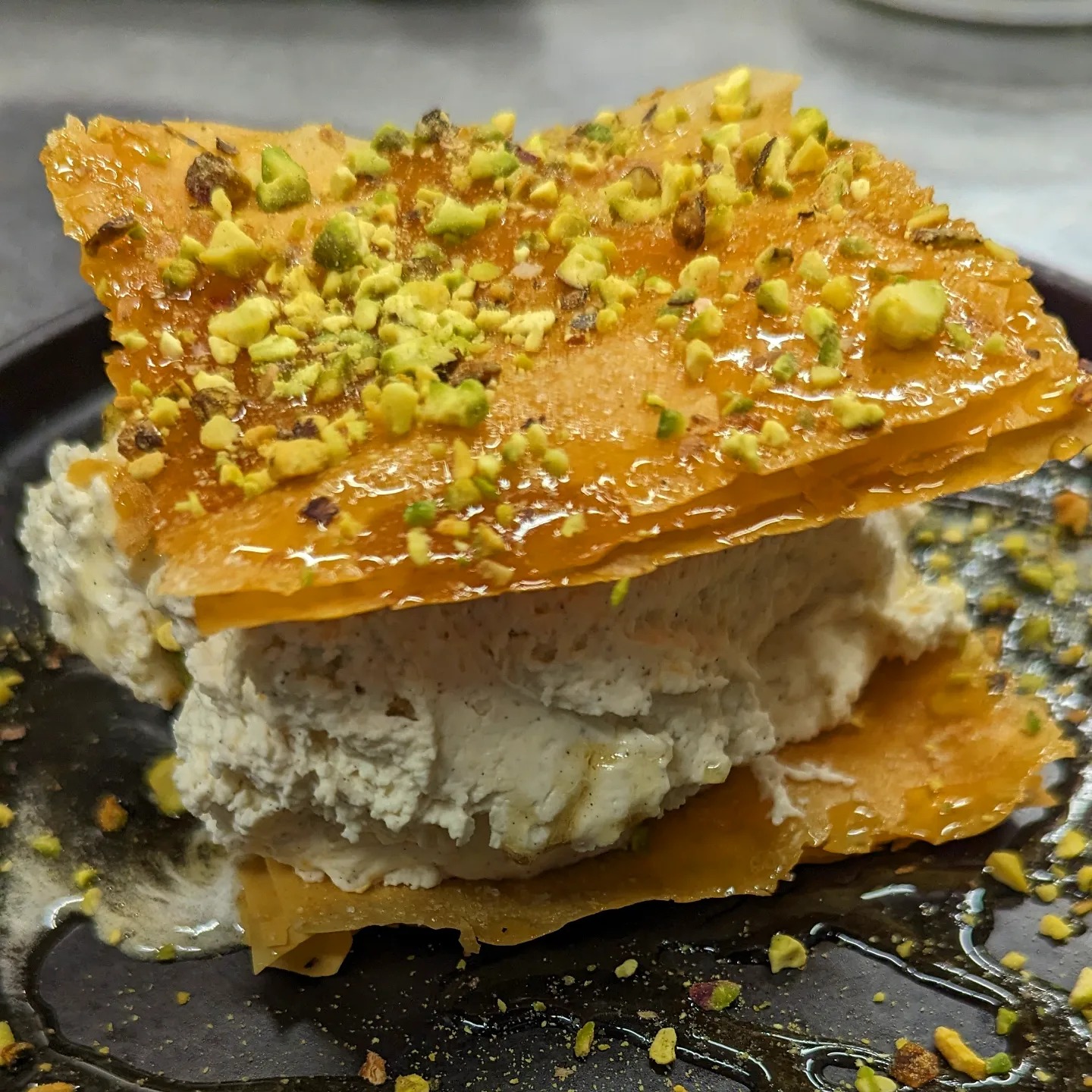
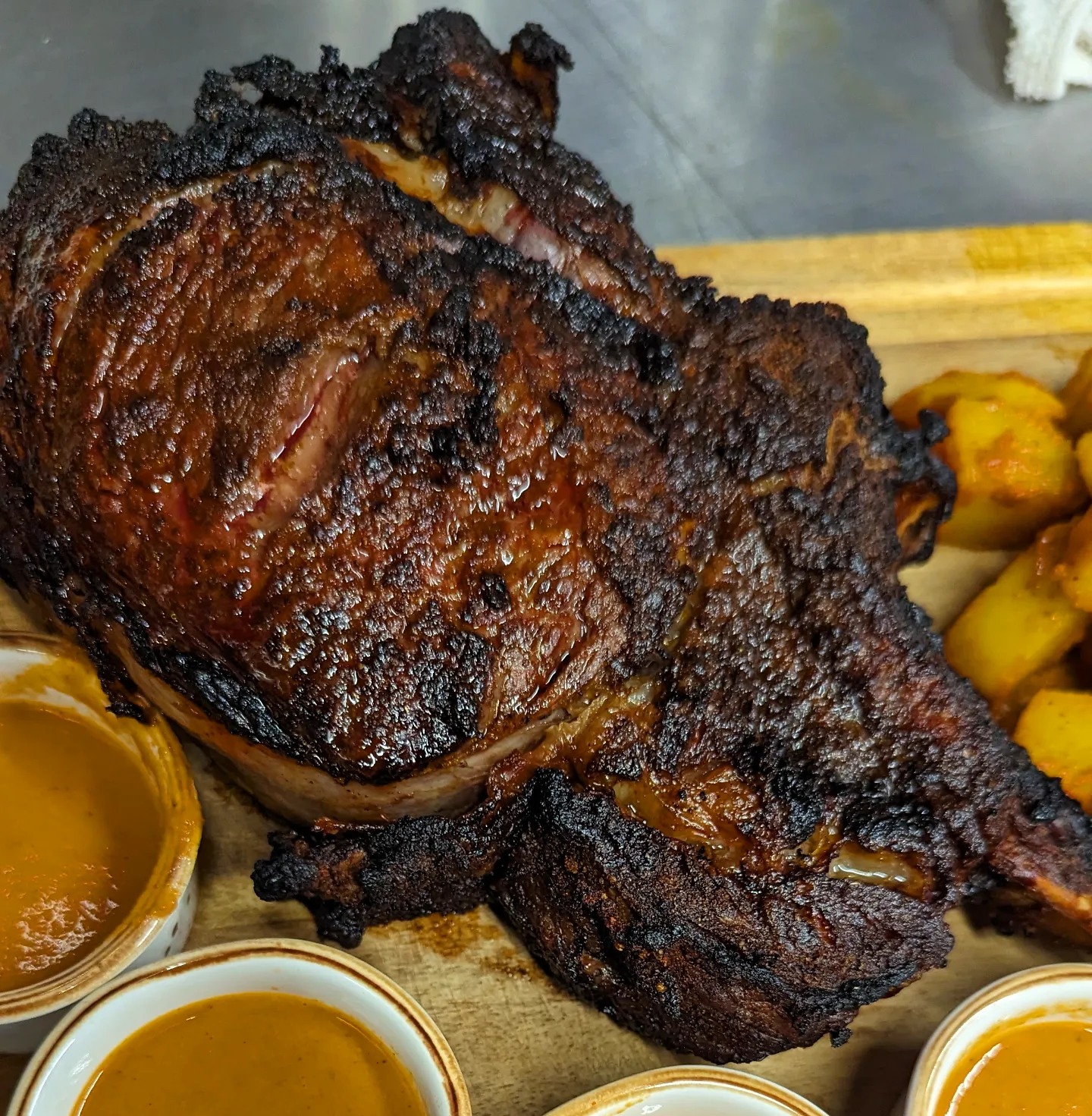
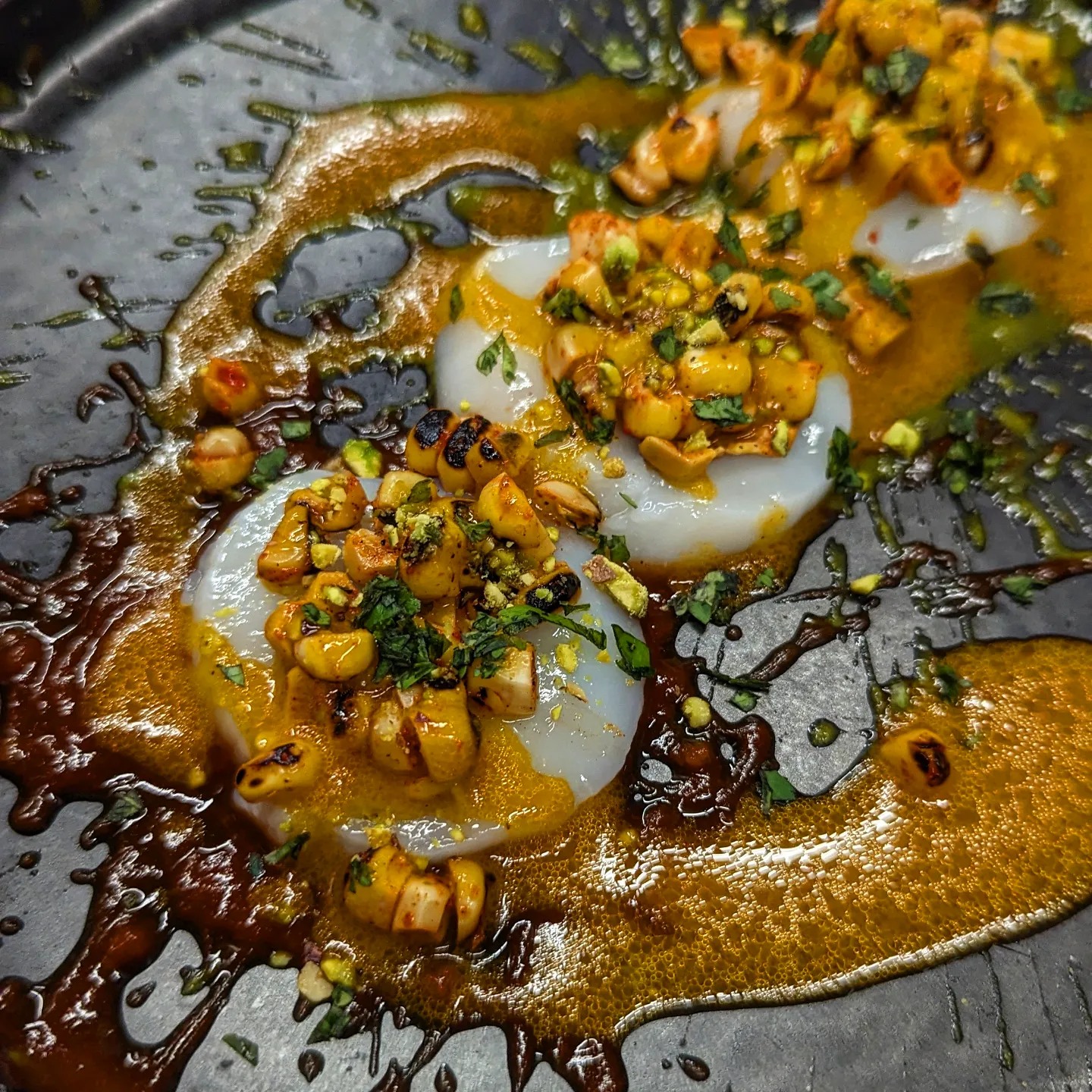
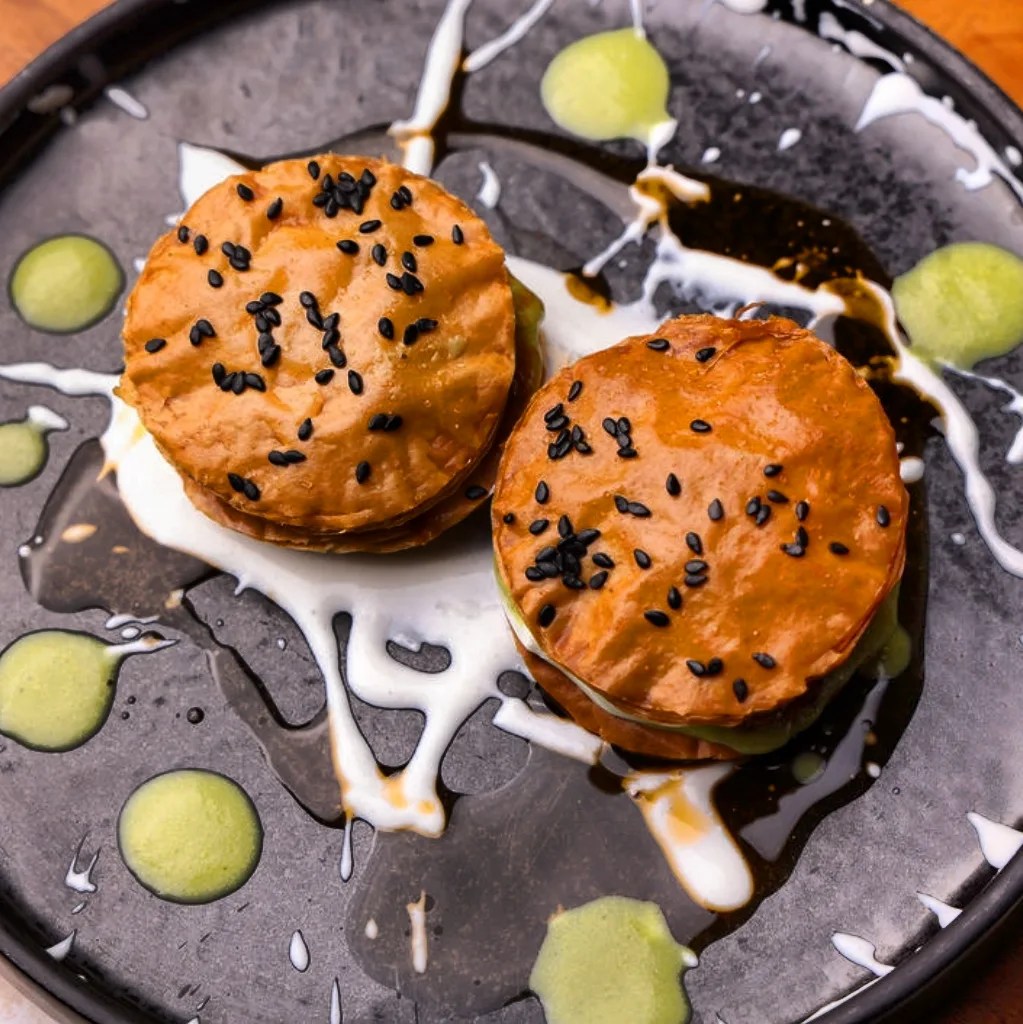
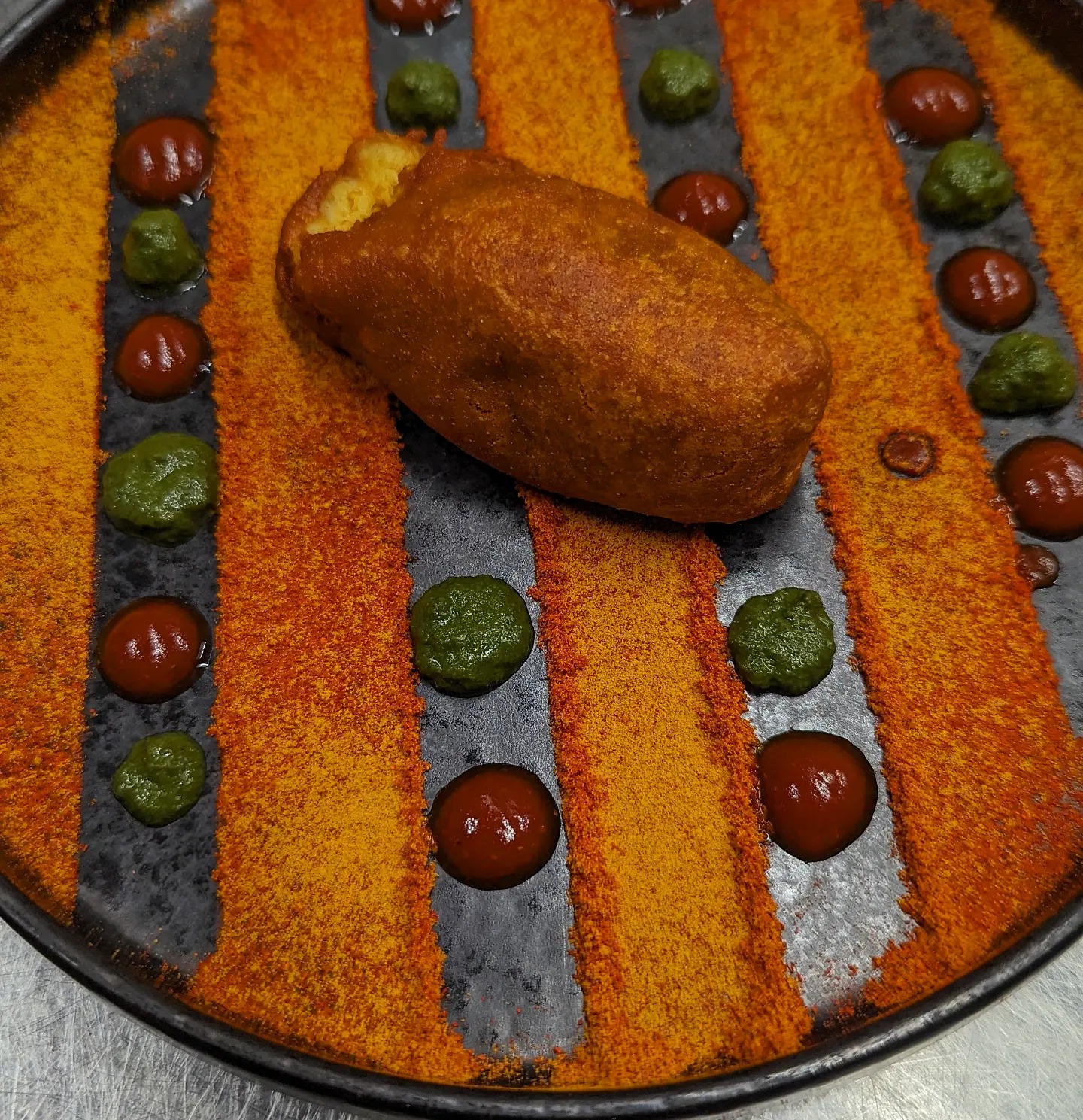
Small plate selections from Sultan’s South Asian fusion menu plated with the Midwest’s finest ethically-sourced ingredients.
Sultan’s current winter dinner menu features wonderful delicacies like lobster karahi stir-fried in a spicy masala, tandoori chicken wings marinated in yogurt and Punjabi spices, murgh makhani French toast served with Wisconsin maple syrup, and slow-cooked kaddu saag (butternut squash, sweet peas and chickpeas spiced with chili and herbs). They also serve naan on the side with several dipping sauce options. For dessert, Sultan offers shahi tukray (cardamom bread pudding) and a masala chai tiramisu.
At the end of November, Sultan unveiled their new “Decolonize Tasting” menu that challenges the Western oversimplification of curry. Different sauced dishes like salaan, shorba, masala, and korma are served as celebrations of the vastness and variety of South Asian cuisine.
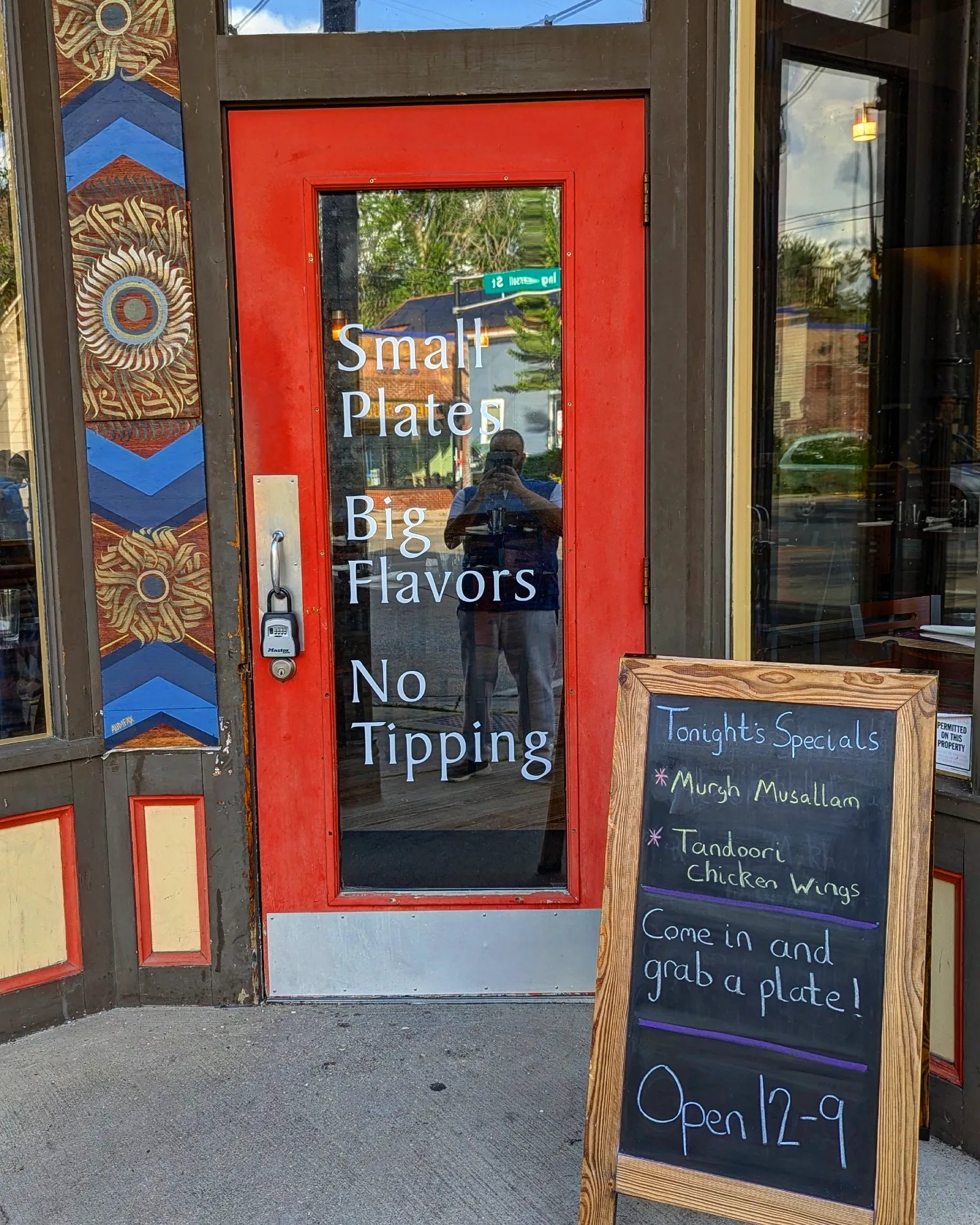
Notable about the restaurant’s operation is their no-tipping policy, emphasized by their motto “Small Plates. Big Flavors. No Tipping.” Instead, Ahmed pays his employees a fair living wage as well as sick time, vacation, holidays and profit share. He points out the problematic roots of tipping culture as his incentive for implementing this practice.
“For me, it’s a matter of integrity and anti-racism. Tipping is a very racist and colonial practice; in America specifically, it was instituted post-Emancipation as a way to not tip Black employees in the South. That legacy continues today.
“As a business owner, it’s important that I do business the right way, or I don’t want to do it. Any business that can’t afford its labor costs shouldn’t be in business. Labor is your primary asset, and America is very unique in that restaurants can just basically ignore 50 percent of what would be a labor cost anywhere else in the world. I think that leads to a lot of endemic problems in the industry. It becomes really hard to find career front-of-house people because no one sees it as a career; it gets boiled down to a part-time job for college kids.
Taking into account the ripple effect that labor costs have on other parts of the industry like the supply chain, Ahmed voices his disdain for restaurants that use poor quality ingredients as a cost-saving measure.
“Because we’re cutting corners with labor, we’re cutting corners with ingredients and all this other stuff. So you have all these restaurants that ostensibly serve really bad stuff that is just rearranged, pre-made frozen products, but they get to be in business because their labor costs are next to nothing. If they had to pay all their front-of-house and kitchen staff appropriately, their doors would be shut. Then that would impact all of these suppliers that purvey factory-farmed goods or preservative and chemical-heavy products that are just bad for our health.”
As a practice to both resourcefully come up with new dishes as well as reduce waste, Monday and Tuesday nights at Sultan are “Lab Nights.” For a $35 flat rate per person, with no menu, the kitchen creatively serves patrons their culinary experiments using ingredients leftover from the previous week.
“There’s a farmers market right down the street from the restaurant on Tuesdays, so we take those items and just come up with stuff the day of,” he adds. “Then we get real-time customer feedback as well, so it’s a win-win.”
Sultan also has jars of South Asian spice blends available for purchase. In fact, if someone particularly likes the flavor profile of a dish, the restaurant will bottle up the spice mix ratio used in said dish for them to recreate it at home.
